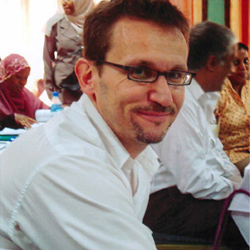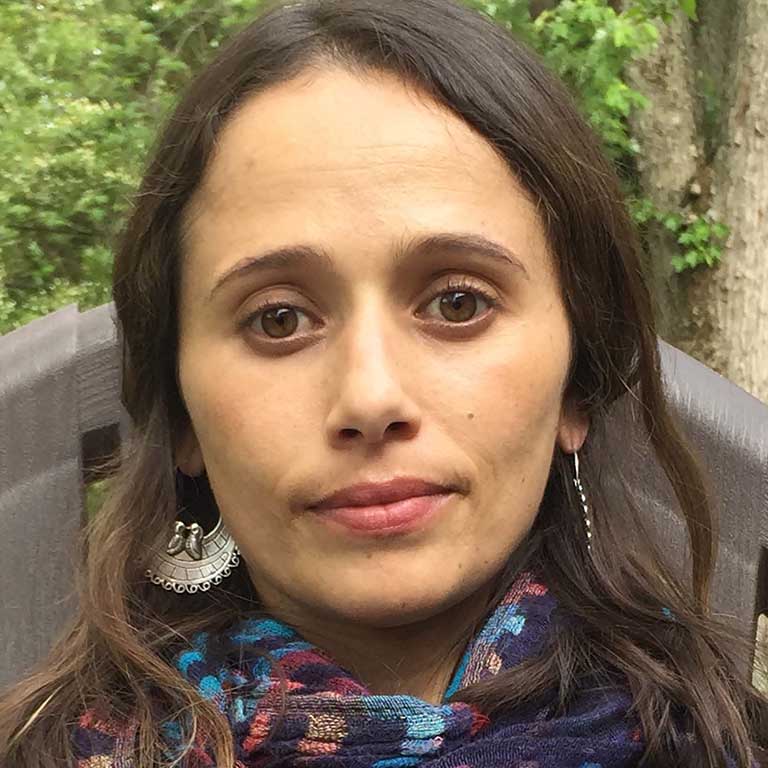Indiana University Bloomington has been awarded a $225,000 grant from the Mellon Foundation to host a year-long Sawyer Seminar, to be led by two faculty members in the College of Arts and Sciences. The seminar will take a multi-disciplinary and comparative approach to examining the interconnectedness of the histories of slavery and other coerced labor systems in Europe, the Americas, Africa, and Asia.
Sawyer Seminar
The Sawyer Seminar at IU, “Global Slaveries, Fugitivity, and the Afterlives of Unfreedom: Interconnections in Comparative Dialogue,” will take place during the 2023-24 academic year. Pedro Machado, Associate Professor in the College’s Department of History, and Olimpia Rosenthal, Assistant Professor in the Department of Spanish and Portuguese within the College, are the project’s Principal Investigators.
The Sawyer Seminar, a prestigious and highly competitive grant, will be based at the College of Arts and Humanities Institute located in the Gayle Karch Cook Center for Public Arts and Humanities on the Bloomington campus.
The Seminar is structured around a year-long series of public workshops and presentations with the participation of prominent scholars from academic institutions from across the United States and around the world. In addition, a public exhibition at the Lilly Library will feature its extensive resources on the Seminar’s main topics. These resources showcase rare and unique visual and textual sources illuminating different aspects of the histories of slavery, “unfreedom” and coerced labor as examined across multiple world geographies, as well as “fugitivity”—the resistance or the fleeing of plantation slavery—as reflected in the library’s collections.


“We are grateful for the Mellon Foundation’s support in our pursuit of a broader understanding of the histories of slavery, unfree labor practices, and fugitivity as complex, interconnected global processes that continue to shape discourses of equity and representation today,” said Professor Machado.
“Through its global connected-comparative framing, we seek to investigate the importance that histories of slavery in the Atlantic, Pacific, and Indian Oceans have for understanding our present, and to reflect on the changing ways in which these histories have been memorialized,” noted Professor Rosenthal.
The Sawyer Seminar will situate commonly held “Atlantic” understandings of slavery, unfreedom, and fugitivity in relation to other forms of enslavement and bondage in the Indian and Pacific Oceans, in order to bring into focus their interrelations and influence in shaping the experiences of millions of individuals, and the emergence of global capitalism as a historical phenomenon.
In this light, the Seminar will bring to the fore the mechanisms through which slavery was challenged across different spaces and at various times. Further, the Seminar will explore how scholars theorize race, examining its conceptions as a social construct and a process of hierarchization with deep roots in colonial regimes of governance of Black and Brown bodies—particularly in relation to gender, slavery, and labor.
“Importantly, a line of inquiry for the project is how to represent these long histories and processes, not only by scholars, but also by artists and curators,” said Machado. “Through the project we want to understand how artists and others are preserving historical memory, what that means to communities, and how it impacts dialogues among and between communities.”
Through the Sawyer Seminar, Mellon’s support is designed to engage scholars in comparative inquiry “that would (in ordinary university circumstances) be difficult to pursue, while at the same time avoiding the institutionalization of such work in new centers, departments, or programs,” according to the Foundation. “As we started conceptualizing this project around histories of slavery and unfreedom, we were seeing that it was incredibly productive to talk with scholars outside our fields, both across disciplines as well as geographical areas of study,” said Rosenthal.
“Mellon’s support for this project is a testament to Professor Machado’s and Professor Rosenthal’s groundbreaking scholarship and innovative research methodologies, that will help us to further understand the processes of the global slave trade, their local and regional meanings, contexts, and impacts, and how we memorialize the histories of slavery, fugitivity, and unfreedom in the present,” said Rick Van Kooten, Executive Dean of the College.
About the Mellon Foundation
The Mellon Foundation is the nation’s largest supporter of the arts and humanities. Since 1969, the Foundation has been guided by its core belief that the humanities and arts are essential to human understanding. The Foundation believes that the arts and humanities are where we express our complex humanity, and that everyone deserves the beauty, transcendence, and freedom that can be found there. Through their grants, the Foundation seek to build just communities enriched by meaning and empowered by critical thinking, where ideas and imagination can thrive. Learn more at mellon.org.


